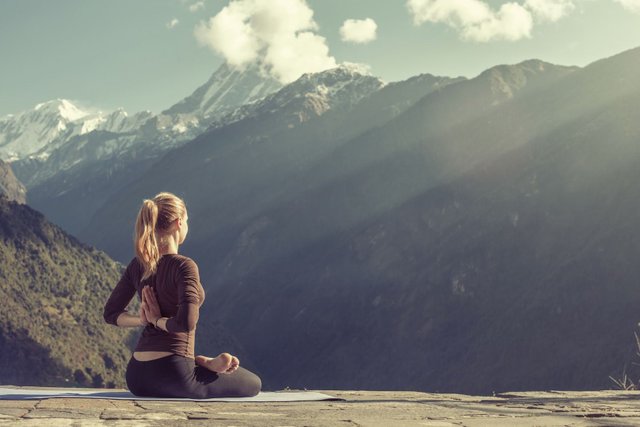
Introduction
Some years back I came across something called the "Alexander" technique.
This is a method of training posture to bring about a host of benefits from improved public speaking ability and general confidence to improvements in a variety of health conditions.
It has a lot of advocates in artistic fields such as acting but it remains quite controversial in medical and scientific circles.
I have always been fascinated by the connection between self perception and mood and hence find these claims quite intriguing.
I came across a new study today from the University of Auckland which suggests that holding an upright posture may have some effect on depressive symptoms.
I have done my breakdown and analysis of the study but if you want the TLDR version scroll down to the "Conclusion".
Study Design Basics
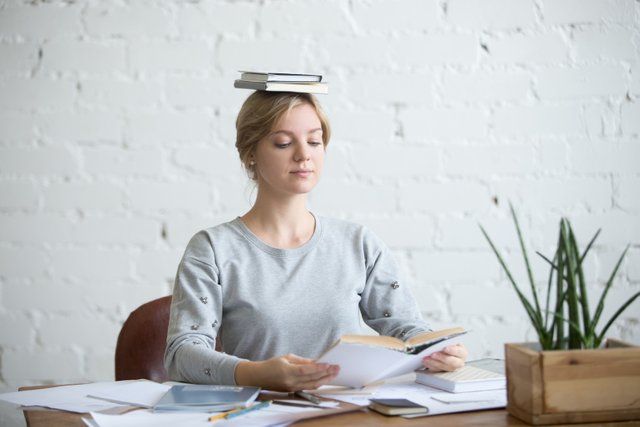
AIM (always very important): "To study whether changing posture could reduce negative affect (short term mood) and fatigue in mild/moderate depression."
Randomised, single blind study.
Participants were told they were being studied for the effects of physiotherapy tape on cognitive function. Not posture on mood.
Two equal groups. One group underwent postural taping (using physiotherapy tape) to put them in an upright posture. The other group had tape applied without any change to their posture. Postural angles were measured using a video camera and computer system.
5 minutes after taping participants were asked to fill out tests relating to mood/affect, followed by a standardised "stress test".
The Stress Test:
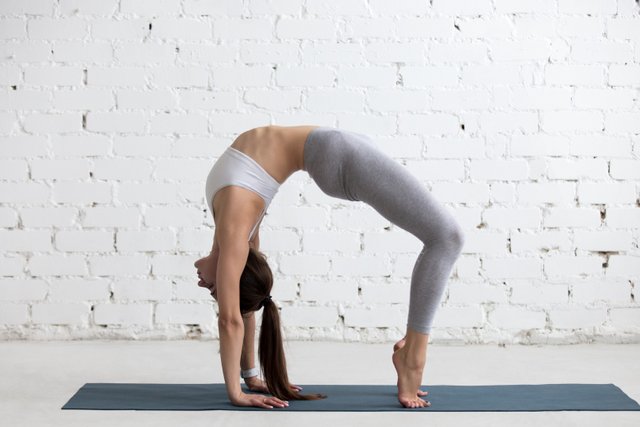
- Subjects given 3 minutes to prepare a speech.
- 5 minutes to complete the speech.
- 3 minutes to complete a mental arithmetic task.
- All without any notes and being told that their performance would be ranked alongside competitors with the winner receiving $200 prize.
- Participants who stopped speaking/calculating were prompted in a standard way.
- Sessions were recorded and transcribed for speech analysis.
- Affect and Fatigue were immediately measured after the stress test.
Inclusion Criteria

These were:
- Age over 18.
- English speaker.
- Mild/Moderate Depression on Beck Depression Inventory. (A common rating scale for depression)
These make sense. It is easier to use adults for reasons of consent and for comparative purposes.
English speakers are needed to complete the experimental tasks.
Severe depression requires appropriate intervention due to the potential health/safety risks so focusing on mild/moderate depression is sensible.
Exclusion Criteria

These were:
- Psychotherapy or Medication last 3 months.
- Suicidal or self harm.
- Psychiatric diagnosis.
- Head injury.
- Current Drug or Alcohol abuse.
- Intellectual disability.
- Physical disability.
- Severe depression.
Treatment via psychotherapy/medication could introduce a confounding factor or variable.
Similarly head injury, drug use and intellectual disability could do the same and could also cause problems with carrying out the study.
Physical disability could make the actual manipulation of posture potentially dangerous or difficult.
As discussed previously severe depression needs more intensive treatment.
Similarly suicidality and self harm need professional management and are not suitable for this type of intervention.
Sampling

This is always very important for a study:
- Subjects recruited through posters, emails, social media.
- Taken from the Auckland Area.
- 335 Applicants.
- 114 met inclusion criteria.
- 61 gave informed consent and completed study.
- 43 females and 18 males, aged 18-66.
Results
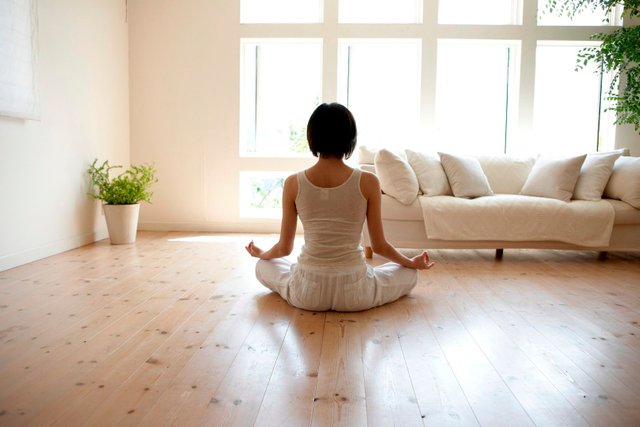
Analysis confirmed that the "upright" group had better posture according to measured angles e.g. head tilt, shoulders spine etc with statistical significance.
Significantly "greater arousal positive affect" in upright group after taping. There was also less decline after stress testing compared to the regular group.
Less fatigue in upright group post taping but no difference after stress testing.
An increase in word count (mean: 524.77 vs 436.27) in the upright group during the speech task.
Correlations found between greater downwards head tilt and speaking fewer words, more personal pronouns and first person singular words.
Discussion of Results
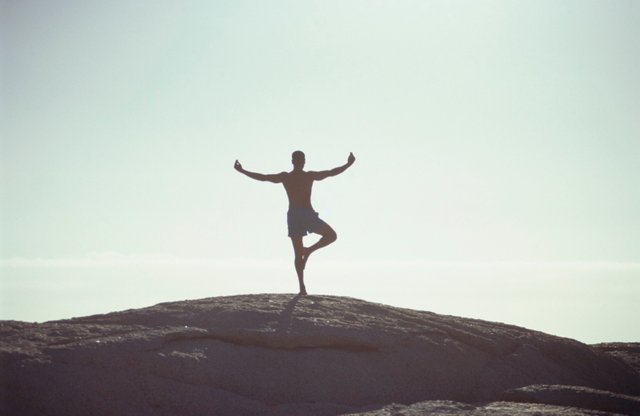
Arousal Positive Affect?
Just to explain this is a measure of both alertness and positive feelings.
I am not sure about the significance of this though.
They used something called the Affect Variation Index (AVI) and I am not sufficiently familiar with it's use and overall validity to comment.
Further the way the data for this is displayed in the table is actually quite confusing and I am not sure if the data displayed in terms of difference scores is relative or absolute.
Perhaps I am just misunderstanding this but I would have preferred some more in depth discussion and explanation.
Perhaps someone who has more familiarity with this can explain?
Word Score Changes
What I do find more compelling is the change in the number of words spoken.
This is an easily quantifiable measure and is consistent with an improvement in mood.
People who are depressed tend to speak less, do so more slowly and quietly and tend to be more self focused.
It is therefore of interest that not only did the word count increase, but the focus on personal pronouns and first person singular words decreased with improving posture.
This certainly suggests that there is some kind of psychological shift occurring as a result of the improvement of posture.
Other Limitations
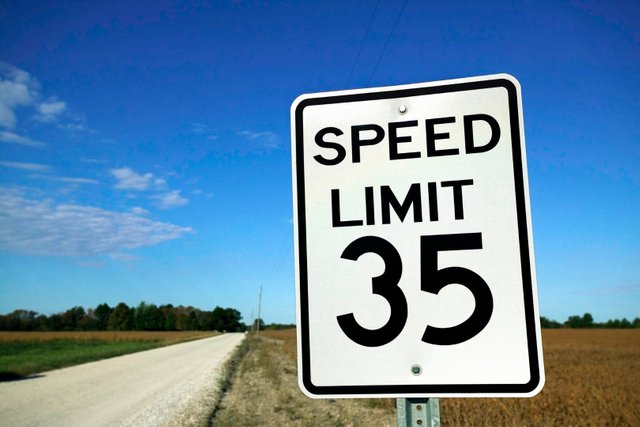
Beyond what I have already discussed in the specific sections I think there are a few potential issues here:
- Small sample size
- Bias in recruitment?
- Male to Female Imbalance (18:43).
- Single blinding.
- Use of psychological scales.
Small sample size is almost always a problem with research.
Obviously the smaller the sample the lower the statistical "power" of your findings.
Also I am wondering if the recruitment method actually resulted in a degree of selection bias in the sample itself.
That is to say are we excluding a particular type of person from taking part based on for example personality type? Would this effect the results?
It is hard to say.
Further the gender imbalance here may skew the results in some under-appreciated manner.
Would the results be just as compelling in a population of mainly men if we reversed the ratio?
The use of single blinding here is for obvious reasons - the person doing the physical taping for posture must know that they are applying the upright posture in order to do it.
That does leave the experiment open to greater placebo effect and expectation being induced in the subjects by those administering the treatment.
It is also unclear if the actual physical manipulations involved in terms of moving people into the upright posture may have some effect rather than the posture itself.
Could the more intensive physical touch and contact this would imply (beyond just applying tape) be responsible for some kind of physiological change similar to massage?
It is also possible that the manipulation itself may introduce some doubt into the minds of subjects as to what is being studied.
I am not sure if there is any way around it though.
Psychological scales are often a source of debate as regards to their reliability too.
One additional thing I noticed by it's absence (and perhaps I missed it somehow) was mention of actual attention/concentration as suggested by the subtraction task.
Perhaps it is hidden away in a table somewhere that I did not see.
Why Would Posture Cause These Changes?
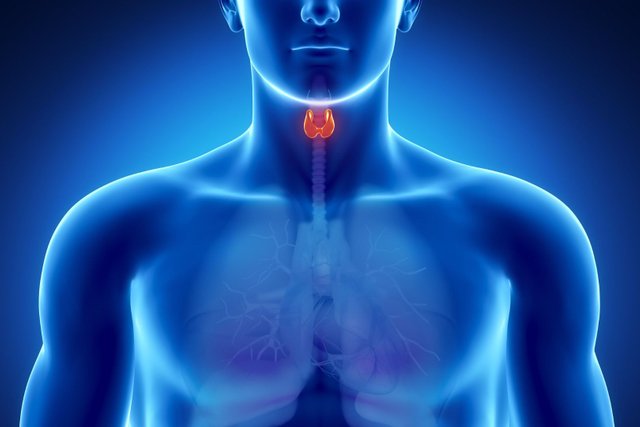
As is often the case we don't know the exact mechanism at play here.
The authors cite previous research that suggests upright posture has effects on alertness and levels of various hormones (e.g. thyroid).
If correct this could be a mechanism for increasing word count - unfortunately the current study did not test for any hormonal changes e.g. cortisol, thyroid hormone etc that may have an effect on this.
This would certainly be something to look at in future studies but it may pose some difficulties in terms of obtaining consent whilst still maintaining blinding.
They also cite the finding that disorders which cause physical stooping e.g. thoracic kyphosis (a spinal abnormality) are associated with depression.
That does not mean that kyphosis causes depression due to posture though. There may be other effects at work such as chronic pain in such individuals which is more likely.
Another theory that may act in conjunction with this is that there is a feedback effect from posture i.e. your self-perception is altered directly by holding yourself up differently and that this directly alters your mood and/or arousal.
Classical conditioning may play a part in this. Remember how Pavlov trained his dogs to salivate by associating the ringing of a bell with dinner?
Could it be that being told to sit up straight by their parents, conditions people into associating upright posture with more positive (less depressed) times in childhood?
I think in the absence of direct hormonal data this would seem more likely.
It would be interesting to test how long this effect persists in future research.
One would expect hormonal effects to last longer than direct perceptual effects.
There is also the possibility of a combination of both mechanisms being present.
Conclusion

As with many studies of this sort this is an interesting starting point.
The findings would be consistent with posture having some effect on mood but without more in depth research I don't think we can read too much into it.
The main finding of note for me was the increase in verbosity in people with upright posture and the decrease in self focus. Both are consistent with at least a transient decrease in depressive symptoms.
I suspect as with many stories one comes across in the news this will be presented as being conclusive evidence that posture changes mood.
I think that would be overstating it given the small sample size and the problems I have discussed.
We need to see these results replicated in larger studies.
The addition of longer time scales and some measurement of blood hormone levels may also be useful in determining the causes of the changes.
References
- Wilkes, Carissa, Rob Kydd, Mark Sagar, and Elizabeth Broadbent. 2017. “Upright Posture Improves Affect and Fatigue in People with Depressive Symptoms.” Journal of Behavior Therapy and Experimental Psychiatry 54 (March): 143–49.
Thank you for reading

Before you go have you filled in the Coinbase form to list STEEM? It only takes a few seconds. THIS POST shows you how.
If you like my work please follow me and check out my blog - @thecryptofiend
Uncredited Images are taken from my personal Thinkstock Photography account. More information can be provided on request.

Hello @thecryptofiend,
Congratulations! Your post has been chosen by the communities of SteemTrail as one of our top picks today.
Also, as a selection for being a top pick today, you have been awarded a TRAIL token for your participation on our innovative platform...STEEM.
Please visit SteemTrail to get instructions on how to claim your TRAIL token today.
If do not wish to be promoted by SteemTrail, please reply with "Stop" to opt out.
Happy TRAIL!

Downvoting a post can decrease pending rewards and make it less visible. Common reasons:
Submit
Thank you:)
Downvoting a post can decrease pending rewards and make it less visible. Common reasons:
Submit
@thecryptofiend's posts are the best posts
Downvoting a post can decrease pending rewards and make it less visible. Common reasons:
Submit
Best pictures, best layout, best grammar, best topics.
Downvoting a post can decrease pending rewards and make it less visible. Common reasons:
Submit
Thank you so much!
Downvoting a post can decrease pending rewards and make it less visible. Common reasons:
Submit
I can buy that it does. I believe that it's also been shown that clothing affects your mood and how you view yourself.
As in if you're poor and dress like that, you feel more hopeless. But if you dress like a person who's better off, it makes you feel better and you're more optimistic. You also reflect that to other people, and it can obviously help with potential opportunities.
Downvoting a post can decrease pending rewards and make it less visible. Common reasons:
Submit
Great points.
There is the old English saying that "clothes maketh the man" and I think the idea is very similar.
I know how when I put a suit on I instantly feel more business like and serious!
Downvoting a post can decrease pending rewards and make it less visible. Common reasons:
Submit
How odd. I could swear I upvoted this. Turns out I didn't. Now I did.
Downvoting a post can decrease pending rewards and make it less visible. Common reasons:
Submit
Thanks mate:)
Downvoting a post can decrease pending rewards and make it less visible. Common reasons:
Submit
Great stuff! Too late for me though I think!
Downvoting a post can decrease pending rewards and make it less visible. Common reasons:
Submit
It is worth a try though I think:)
Downvoting a post can decrease pending rewards and make it less visible. Common reasons:
Submit
OK you talked me into it lol...after 71 years as a knuckle-dragger!
Downvoting a post can decrease pending rewards and make it less visible. Common reasons:
Submit
Lol I am the same. I'm not 71 but I probably have the skeleton of an 80 year old from slouching!
Downvoting a post can decrease pending rewards and make it less visible. Common reasons:
Submit
I guess that would put me in my 100's lol!
Downvoting a post can decrease pending rewards and make it less visible. Common reasons:
Submit
I suspect you are in better shape than me!
Downvoting a post can decrease pending rewards and make it less visible. Common reasons:
Submit
AWESOME POST @thecryptofiend!!! I have to admit that it sure is the case for me and every time I catch myself stating the importance of a straight relaxed posture for the whole body, I feel better and better, even happier, I'd say.
Even if it were only for the betterment of oxygenation processes throughout the body, especially if one has to use energies form above the hips, the results are even more obvious and easily felt, though one has to push herself or himself well passed the point of comfort to challenge the matter at hand decently enough to come to this realization.
The main findings are very interesting and I have to stress that your questioning/critical thinking is highly appreciated, to the point and rings of clarity. Thank you so very much for your sharing of precious time, positive and creative energy, quality of work once again.
All for one and one for all! Namaste :)
Downvoting a post can decrease pending rewards and make it less visible. Common reasons:
Submit
Thanks for such a fantastic comments. I am going to experiment with this myself. I just caught myself slouching and corrected!
Also breathing is incredibly important for something that we need to survive many of us do it really poorly but I am sure you know more about that than me!
I came to meditation quite late and I still have to force myself to do it sometimes but it helps a lot.
Thanks so much for your kind words:)
Downvoting a post can decrease pending rewards and make it less visible. Common reasons:
Submit
You are now officially one of the person I am following, it took me forever to finally realize that you weren't already on my list! LOL!!! Judging by my reading attendance, I bet you couldn't tell!?! :)
I'm so glad you are increasing your levels of awareness, including the posture as a path toward liberation and your freedom of mind and body. This has very powerful implication that, as you underlined so eloquently in your critique of this last article, need more, much more studies and mindful awareness of oneself to underline the monumental benefits to using a straight posture.
As you also not fail to point, the breathing itself comes in conjunction to the posture allowing to render the potential of the experience exponentially powerful. I can only speak from experience in relation to this and know for a fact that it is the case for all of the meditators practicing, for instance, kundalini and kriya yoga... You are definitely right about me having delved into the realms of meditation and related exercises.
The kind words are so well deserved, it was brilliant! Thanks again and namaste :)
Downvoting a post can decrease pending rewards and make it less visible. Common reasons:
Submit
Thank you so much. Yes and it is not just me the scientific evidence is growing!
Downvoting a post can decrease pending rewards and make it less visible. Common reasons:
Submit
I have mentioned before in my posts when i was younger I was a gymnast, we were constantly told shoulders back stand tall. I did feel good when I was in gymnast mode, can't do it now unfortunately
Downvoting a post can decrease pending rewards and make it less visible. Common reasons:
Submit
Interesting. Thanks for sharing your experience.
Downvoting a post can decrease pending rewards and make it less visible. Common reasons:
Submit
A truly great, well organized and thought out post @thecryptofiend.
I believe, that in the grand scheme of things, the only thing that really matters is our own experience. Regardless of what studies say, if it benefits even one person, then we know it is possible. And if it is possible, then no matter how many others it benefits or doesn't benefit, it really only matters if we are in alignment with, and open to, the possibilities of receiving that which we know to be possible.
We have also experienced that holding your arms above your head for 15 minutes a day is a great help and/or remedy for depression. It can all be so so simple!!
Thanks for sharing such an upbeat post!
Downvoting a post can decrease pending rewards and make it less visible. Common reasons:
Submit
Thank you and thanks for sharing your experience!
Downvoting a post can decrease pending rewards and make it less visible. Common reasons:
Submit
Me parece muy interesante mantener una postura que por estetica se ve genial pero mucho mejor si tiene que ver con la tiroides
Gracias por la informacion
Downvoting a post can decrease pending rewards and make it less visible. Common reasons:
Submit
You're welcome:)
Downvoting a post can decrease pending rewards and make it less visible. Common reasons:
Submit
What an intelligent and well organized work. welldone
Downvoting a post can decrease pending rewards and make it less visible. Common reasons:
Submit
Thank you so much:)
Downvoting a post can decrease pending rewards and make it less visible. Common reasons:
Submit
Very interesting and written post!! Now, more than ever, I need to work on my posture!! Thanks for sharing :)
Downvoting a post can decrease pending rewards and make it less visible. Common reasons:
Submit
You're welcome:)
Downvoting a post can decrease pending rewards and make it less visible. Common reasons:
Submit
Awesome article there. I fell in love with the setting and everything. Nice work.
Downvoting a post can decrease pending rewards and make it less visible. Common reasons:
Submit
Thank you:)
Downvoting a post can decrease pending rewards and make it less visible. Common reasons:
Submit
I tend to be sceptical about 'alternative' remedies, but how we feel mentally is important. Our passive modern lifestyles are not great for posture. We're slumped on the couch watching TV or bent over our devices (or both simultaneously). I've suffered some back problems and bad posture may contribute to that.
Downvoting a post can decrease pending rewards and make it less visible. Common reasons:
Submit
Yes for sure. I think a lot of furniture is ill designed too!
Downvoting a post can decrease pending rewards and make it less visible. Common reasons:
Submit
Great article, as always.
My daughter has scoliosis and as her posture deteriorated her mood did too but daily, chronic pain was definitely a factor and as she became more hunched over, people always telling her that she was shy, and trying to force her into a role, just added to her growing depression.
Since she was diagnosed, 15 months ago, she has had chiropractic adjustments twice per week using the advanced biometric correction technique. At first I was skeptical but I felt like I had to do something and the local hospital was only offering her physiotherapy, which does nothing for scoliosis and x-rays incase her spine deteriorated to the point of surgery.
I'm happy to say though that her posture is almost normal now: her shoulders and hips are level, her legs are now the same length and her pelvis is only tipped 1deg rather than 4. Mentally she's back to her old self and she rarely has back pain any more, despite her having what began as a 32deg 's' curve in lumbar, thoracic and neck. Her 6 month X-ray showed a tiny improvement, 29deg but the fantastic thing was that there was noticeably more space between many of her disks.
She walked into her first appointment in pain and walked out pain free, which lasted a few days and for that reason alone, I gave them a chance.
After about 6 months she could do things that she'd never been able to do, like touch her toes with a flat back and squat down to the ground (we could never understand why she was so inflexible having had dance lessons since she was three.) Then she was forced, over the course of a week, to sit in bad chairs at school, for a few hours a day and she couldn't squat or touch her toes again until she'd had 3 adjustments.
The best thing is that after getting mostly Bs and Cs in her mock GCSEs, she went on to get mostly As and a few Bs because she was mostly pain free (and had a nice wedge to sit on!)
It's an incredibly slow process and it costs a fortune because it's too cutting edge to be believed.
I think that posture as well as pain affects mood and personality. I think that when people become stiff and inflexible through age and injury, they become more risk averse and I think this is nature's way of preventing people from actions that could fatally injure them and I think that this necessary risk aversion is linked to bad mood! Nature couldn't devise a way of ensuring that fragile people said, "no" to just the dangerous stuff, so it turned them into all round grumps, that reject anything exciting whatsoever!
Downvoting a post can decrease pending rewards and make it less visible. Common reasons:
Submit
Thanks you for sharing your experiences. I'm not as sceptical as some people are about alternative therapies like chiropractic/osteopathy - if it works stick with it. The risk aversion idea is a really good idea - would be interesting to look into it more!
Downvoting a post can decrease pending rewards and make it less visible. Common reasons:
Submit
Thanks. She has her next X-ray in April, which will mark 18 months of treatment, if the curve is down to even 25deg, I'll be pleased.
Downvoting a post can decrease pending rewards and make it less visible. Common reasons:
Submit
Best of luck hope it goes well:)
Downvoting a post can decrease pending rewards and make it less visible. Common reasons:
Submit
Very interesting read, what a great article! @thecryptofiend you are so knowledgeable I always learn a lot from your posts!!
Downvoting a post can decrease pending rewards and make it less visible. Common reasons:
Submit
Thanks glad you found it useful:)
Downvoting a post can decrease pending rewards and make it less visible. Common reasons:
Submit
Mind blowing read
Downvoting a post can decrease pending rewards and make it less visible. Common reasons:
Submit
Thanks. What do you think about the principle though? I must admit I tried doing this myself a little earlier and it seemed to work! That may just be placebo and is entirely unscientific but I will certainly be experimenting with this when I feel down. If not anything else it will make my posture better which should reduce the tension in my back and shoulders!
Downvoting a post can decrease pending rewards and make it less visible. Common reasons:
Submit
I reckon there is a lot of truth to this.
I believe our consciousness is more connected to our entire body than we realize - healthy body healthy mind right?
This attitude of good posture as well as body movement is big in my country, Norway. Some schools here have started having mediation periods before class and I know that the posture is a big part of it.
I mean when you think about the back and how virtually all our nerve endings go though there then surely a good posture, or indeed, a bad posture, as an affect.
I have a tendency to slouch when I on my labtobp
Im gonna stop that now after reading this lol!
Downvoting a post can decrease pending rewards and make it less visible. Common reasons:
Submit
Great points. I agree the mind body link has been neglected for so long. I think this factors into things like yoga too and of course meditation is good for you for a whole host of reasons.
Lol me too:)
Downvoting a post can decrease pending rewards and make it less visible. Common reasons:
Submit